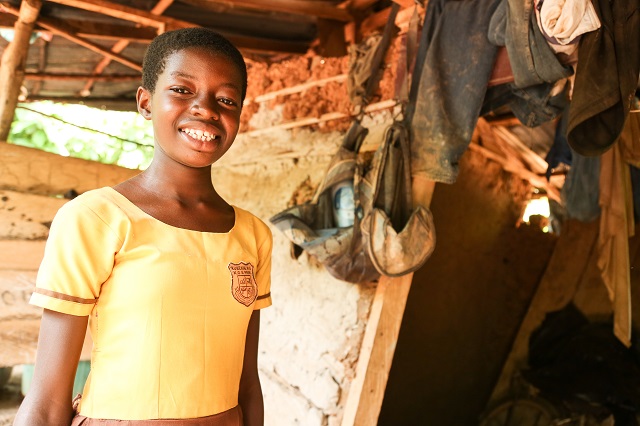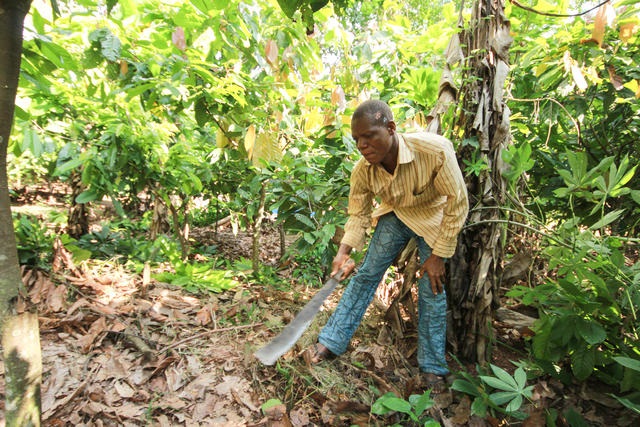Family Strengthening Programs Change Fortunes in Ghana

Christie*, 12, is a sixth grader who lives in a town outside Kumasi, Ghana. She loves school and science is her best subject. Her dream is to be a nurse so she can help sick people. Unfortunately, she is sometimes unable to go to class.
Although education is free in Ghana, having to buy supplies like books, pens and uniforms, as well as paying other educational fees, makes school expensive for resource-poor households like Christie’s. Investing in her education will open future employment opportunities but her parents’ meagre income from the cocoa plantation they manage does not meet their basic needs.
“When I have a job, I will take care of my parents by building them a good house,” says Christie. “I will also give them money for the doctor when they are sick, and to buy good clothing to wear at home, and school uniforms, shoes, school bags and books for my younger siblings,” she says.

Christie’s desires reflect the dire situation at home. Without many opportunities, poverty will not only destroy her dreams, but any chance the family has of a better life.
When Christie’s father, Awini, moved his family to Kumasi from northern Ghana 6 years ago, he was optimistic that life would be better for them. He even started building a three-room house for his family to live in. However, his 400 Cedis (98 CAD) quarterly pay from cocoa harvests is not enough to sustain them. As a result, Awini abandoned his project after completing only one room.
The mud house now has a gaping hole in the wall and the whole family has to sleep in that one room. The parents and their youngest child sleep on the only available bed, while Christie and her two siblings – 15 and 10 years old- share a mat spread on the dirt floor. Cartons serve as the ceiling. The room is stuffy and has no proper ventilation.
The children use the same room to do their homework, using a torch or light from their parents’ phone. Their father must charge the phones at a nearby church.
“I lay awake most nights, because I am not able to take good care of my children, as a father should,” says Awini. “Sometimes I even regret having them. Why have children I cannot provide for? I have decided not to have any more,” he says.
Awini was Christie’s age when he first came to Kumasi from northern Ghana, where he was born, to work in order to support his mother. After his father died, there was no one to take care of his education needs. His wife, Anamas also left school early and married him. This is not the life they want for Christie or any of their children.

The SOS Family Strengthening Program (FSP) works to empower families who are experiencing economic hardship, which is a leading cause of family separation, neglect or abuse. The SOS FSP builds the capacity of the caregivers by providing parenting workshops, access to education and health care, and equipping parents to earn an income, so they can build a stable home for their children.
The Awini family is among 250 households identified by the FSP team who will benefit from SOS’s support over the next five years. Through this support, Christie and many other children will remain in school, the main way for them to realize their childhood dreams, and break the vicious cycle of poverty.
*Name changed to protect the privacy of the child.
Canadians wishing to help vulnerable children are encouraged to sponsor a child, sponsor a Village or make a one-time donation. Your support will change the lives of orphaned, abandoned and other vulnerable children. Please help today.
